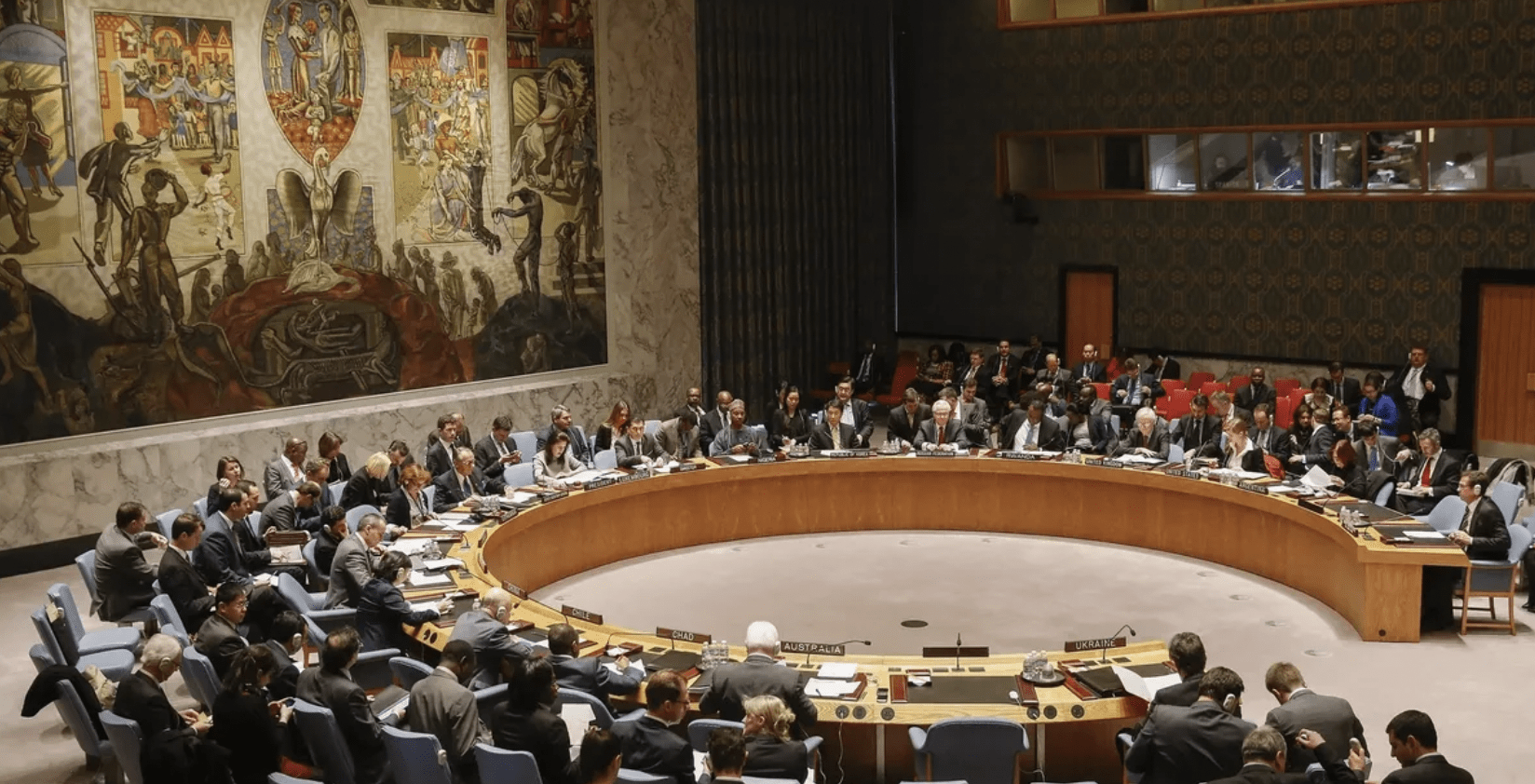The First Step Toward World Peace: Fix the United Nations
 The United Nations Security Council/AP
The United Nations Security Council/AP
Louise Blais
October 27, 2023
The saddest part of the spectacle of three competing UN Security Council resolutions on the Israel-Hamas conflict all failing this week is that it was classic UNSC intractability and, as such, not a surprise.
The inability of the Council to uphold and apply the UN Charter is all-too familiar. Decades of gridlock and self-interest on the part of certain members of the P5 were capped in 2022, when Russia, the aggressor, was able to veto Ukraine-related resolutions. That crisis could have been a turning point. A moment of reckoning for the United Nations. An “enough is enough” catalytic opportunity for a majority of the 193 to put their collective feet down.
The UN Charter provided the tool to do so in Article 27(3) which states that a party to a dispute in the Council (including both permanent and elected members) shall abstain from voting in decisions under Chapter VI of the Charter. In fact, in the first six years of the UN — between 1946 and 1952 — Security Council members regularly adhered to the obligatory abstention rule. Members that voluntarily abstained during this period include the UK, France, India, Pakistan.
Alas, over time, the P5 have curtailed the application of this mechanism. While there were private conversations about invoking Article 27(3) over Russia’s behavior, none of the 10 elected members had the courage, vision or backing to put forward a resolution. One can only assume that the other veto wielding powers; the US, UK, France and China had zero interest in supporting such a move for fear it would limit their own power in the future.
According to the UN Security Council Report of May, 2023:
“The non-application of Article 27(3) in this (Ukrainian) case could fuel arguments that there has been a normative evolution in the practice and that a new customary rule has developed. By remaining silent, Council members may be reinforcing the idea that Article 27(3) is no longer relevant.”
Time and time again, the anachronistic P5 have worked to solidly increase their power beyond the original intent in 1945. They have manipulated, changed and imposed rules and procedures, not to uphold the values of the UN or prevent conflict, but to game the system to their advantage.
And other member states have let them get away with it.
I would argue that the General Assembly needs to pass an existential resolution; one that gives it precedence over the UNSC in times of conflict so that all countries who wish it can speak as equal members in the Great Hall of the UNGA.
In the face of widespread public outrage over the lack of fortitude on the part of the UN Security Council to take a stand over the Russian Federation’s blatant aggression against Ukraine, many member states took action and called for a Special Emergency Session of the General Assembly (UNGA) over the conflict. It later passed a resolution to hold P5 members who used the veto to account, at least symbolically. But this was a mere Band-Aid on what has been a hemorrhage of credibility for the UN. And Russia simply shrugged its shoulders and kept on defying international law by targeting and killing civilians.
Fast-forward to the current crisis in the Middle East. Yet again, two weeks into the conflict, the UNSC fails to agree on the most minimum standard of protection of civilians. Not just one or two, a total of four P5 members have used their veto at one time or another these past 10 days, France being the only exception.
In light of this mess, yet again, the General Assembly called for a Emergency Special Session. A resolution calling for peace is expected to be presented by Jordan for a vote. I suspect it will pass with overwhelming support.
I would argue that the General Assembly needs to pass an existential resolution; one that gives it precedence over the UNSC in times of conflict so that all countries who wish it can speak as equal members in the Great Hall of the UNGA, not as an afterthought to glaring inaction on the part of the UNSC. This way, each member state can speak, not as invited non-voting presenters in the undemocratic, cynical club that is the UN Security Council, but as equal nations.
Such a resolution should stipulate that the General Assembly can instruct the Security Council to take action to protect civilian life. This is possible. But it takes conviction.
The will of the two-thirds majority of the General Assembly is as close as you can get to fairness, legitimacy and the values that underpin the UN. I have rarely seen that majority act immorally. It is the ultimate protection against the self-dealing and gamesmanship of the UNSC.
Time to use it. Who has the courage to lead the way? The world is waiting.
Otherwise, we can expect the reputation and efficacy of the entire UN to deteriorate further and the cycle of violence and suffering to continue in the Middle East. Because under the status quo, there will be no binding resolutions to prevent further deaths in Israel or Gaza. All we can still hope for is that diplomacy through other channels will somehow prevail down the road.
Policy contributing writer Louise Blais served as Canada’s ambassador to the United Nations and as consul general in Atlanta. She is now an advisor to the Pendleton Group and diplomat in residence at l’Université Laval.
